Manchester University enhanced its engagement with the South Asian diaspora at a recently held workshop on live performances of Bengali folk music.
Manchester University academicians and art historians from Modern India and humanities departments, engaged proactively with the South Asian diaspora in Manchester through an event and workshop: SINGING HERITAGE: AN AFTERNOON OF BENGALI FOLK SONG PERFORMANCE, in end July.
Organised by Dr Anindita Ghosh, Professor of Modern Indian History, HNAP Co-ordinator, Faculty of Humanities at the University at the Heaton Mersey Community Centre, the unique event was about Bengali folk songs related to migration of the Bengali community from Bangladesh into the north-west in the 1950s and 1960s.
It recalled the tremendous sacrifice of some of the earliest generations of migrants from Bangladesh, working as mill and factory workers, who went on to settle down in the UK. Bengali Indians and Bangladeshis both were attracted to attend this event.
The songs sung at the event spoke of feelings of parting, loss and exploitation as workers migrate from their homelands and villages to work in cities and towns, and other locations. Elderly migrants recalled the struggles of their times and described how significant these folk songs were in creating bonds of community and friendship.
People would sing at the end of a hard-working day – often with improvised musical instruments like kitchen utensils and plates – to warm their hearts and souls, and to remember the land they had come from. The weaver’s song, rickshaw puller’s song, fisherman’s song all were so closely linked in rhythm to the ballads of Lancashire. Essentially those were the songs, music , culture of the working class irrespective of boundaries.
A workshop in the latter part of the event brought together people in a friendly, informal discussion on the importance of Bengali songs and culture for the migrant community in the 1950s and 60s. Participants cried and hugged each other, and younger generations were grateful for the memories that had been captured and reminisced through the workshop.
In thinking about these songs, there can be traced striking similarities with songs from the nineteenth century in Lancashire, more specifically, ballads registering the misery of modern industrial living and labour. Jennifer Reid, broadside ballad performer and local historian, has established exciting linkages between Lancashire and Bengali folk songs on similar themes, particularly with the textile industry. She also sang at this event. She played for the audience clips of weaving songs she had collected on her recent trips to Dhaka, teasing out the similarities with the Lancashire songs.
According to Prof Ghosh, ‘’one of the main purposes of the event was to capture these memories and songs for the younger generations of Bangladeshis in the UK.’’ To that end the songs were professionally audio recorded with the explicit purpose of archiving them in the Central Library, Manchester. Prof Ghosh provided the historical context and analysis for the songs, outlining the fundamental importance of capturing the heritage preserved in past oral cultures, for shaping current diasporic identity.
Prof Ghosh pointed out that The Social Responsibility theme at the University of Manchester encourages academics to engage with the communities that the city serves, and in which the University is based, making academic research accessible and useful for them.
In keeping with that goal, the University of Manchester funded the event, fulfilling its objective of ‘making a difference to the social and economic well-being of our communities through our teaching, research, and public events and activities.’ Prof Ghosh herself has published on Bengali songs, displacement and migration, and in this instance she was using the fruits of her research to explain the importance of songs for migrant diasporic communities in the UK in the north-west. She also hoped by this to raise awareness of this rich Bengali musical heritage for younger generations of Bangladeshis in the UK.
There were two parts, performances in the first half and a workshop in the second half. There were songs sung by fishermen, weavers, farmers and rickshaw pullers that were haunting in their melodies and spoke of hardship and poverty, parting and displacement, exploitation and misery. There was a lot here that connected with the migrant experience in UK in the 1950s and 60s.
The audience numbered over a hundred, both young and old. There were emotional scenes at the workshop as people recalled those hard times. The Chairman of the Greater Manchester Bangladeshi Association, Mr Wahab Abdul Nashir, acknowledged the fantastic work that Prof Ghosh was doing for posterity. He pointed out the invaluable significance of the preserving of this heritage both by way of educating the young, and in memory of the pioneering generations from Bangladesh who had settled in the north-west. – Shujata Akhtar, Burnley, one member of the audience commented, “We tend to forget their sacrifices. So I commend Professor Anindita Ghosh’s effort of providing a platform for our future generations to learn and seek knowledge about our heritage.”
Among those present Mohammad Habeebullah, OBE JP, governor of MMU; Prof Patrick Joyce, retired professor of History, Manchester University; Syed Sadek Ahmed from the Bangla Youth Forum; some Councillors and television network ATN Bangla.
Performers mesmerised the audience with the folklore and music. Artistes included Masih-ul Alam, Rawshan Reza Choudhury, Javed Siddiqui, Farhana Zafar, Misbah Uddin Ahmed, Mohammed Sadif, Syed Hasan Kawsar, Waseema Tasneen, Moshfique Uddin and his daughter, 11 year-old Ruksar Quazi and Nuruzzaman and Babu bhai.
There were others visibly fighting back tears as they heard veterans recall how they would get together to sing at the end of the day and look out for the early morning 4 am broadcast of the one Bengali song from BBC World service, that used to feature on their programme in those days. Many younger members of the audience said that this was an unknown chapter and they were grateful for learning about it, as they now had more respect for their migrant ancestors in this land. The Bangladeshi community promised to rally round Prof Ghosh in her ongoing efforts in this direction. There is a further event based on this theme coming up in November 2019, also organised by Prof Ghosh.

Rahul Laud
Rahul Laud wears many hats. He is a senior journalist, and works as the Associate Editor of Asian Lite, based out of Manchester, UK. He is the Curator and Facilitator of SAJDA Festival and is a regular volunteer for the Art of Living and the IAHV global charities. He is a musician himself and teaches the tablato the younger generation of music enthusiasts.
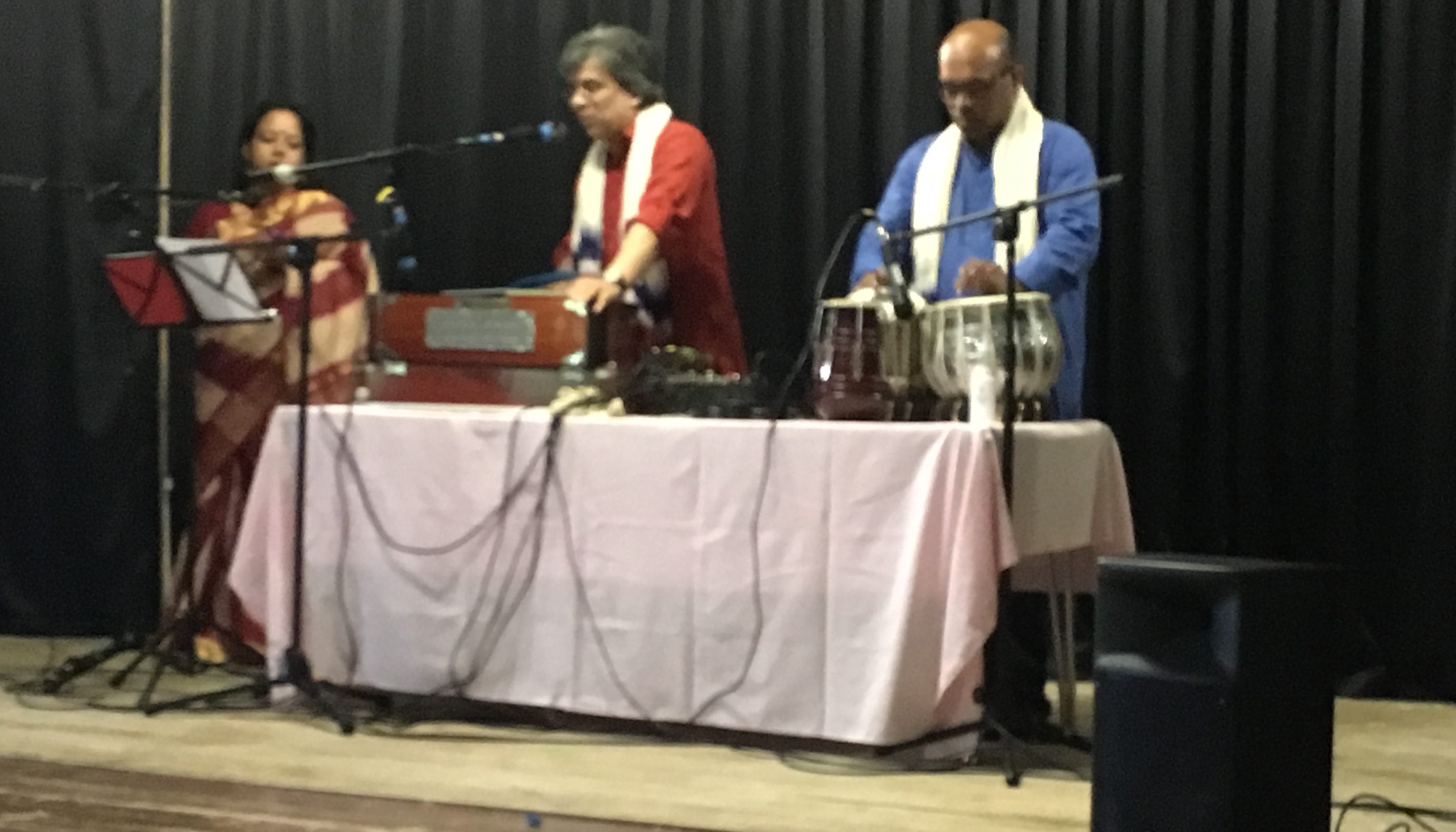
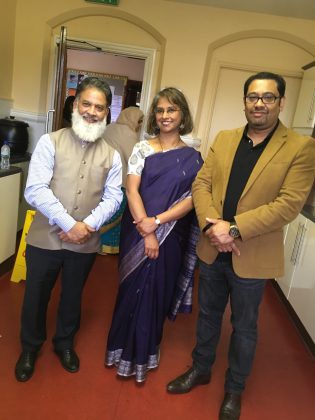
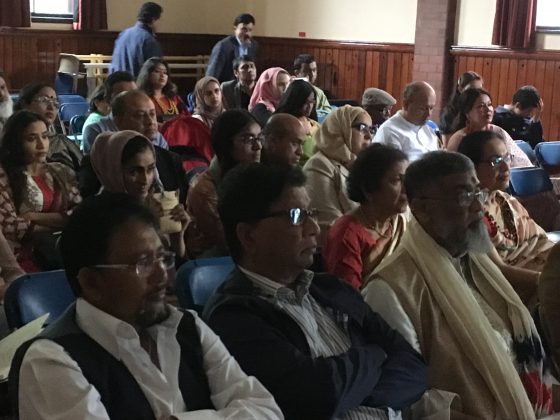
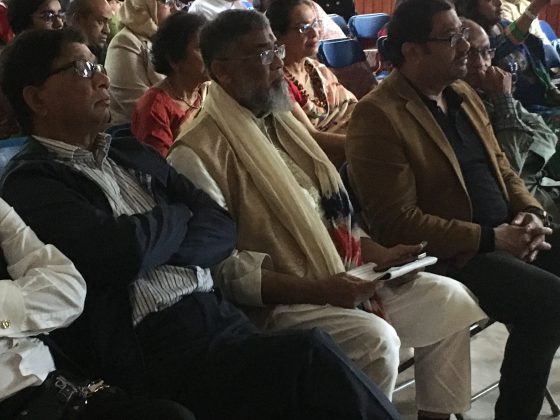
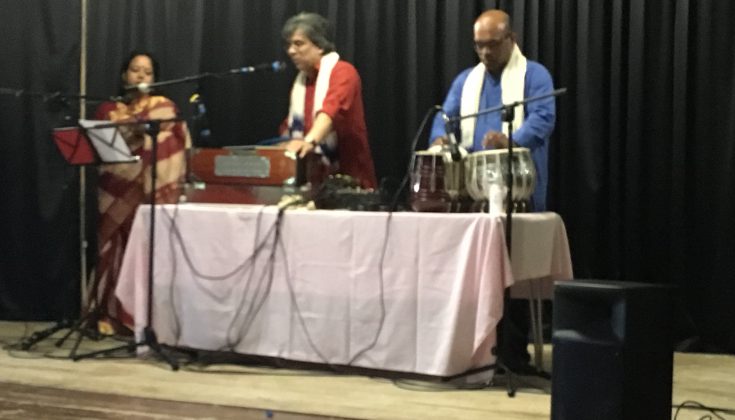
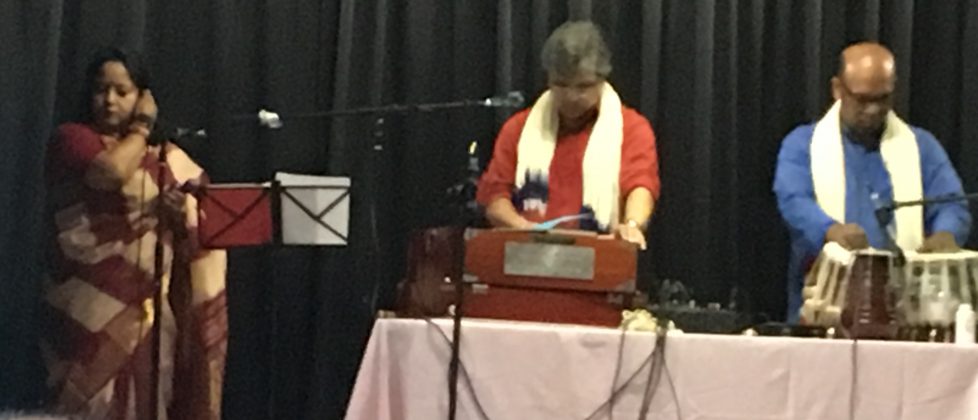
![Powerful Pride documentary Legendary Children [All Of Them Queer] streaming very soon](https://globalindianstories.org/wp-content/uploads/2025/06/Legendary-streaming-release-featured-238x178.jpg)



![Powerful Pride documentary Legendary Children [All Of Them Queer] streaming very soon](https://globalindianstories.org/wp-content/uploads/2025/06/Legendary-streaming-release-featured-100x75.jpg)

